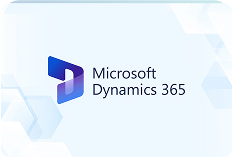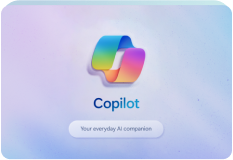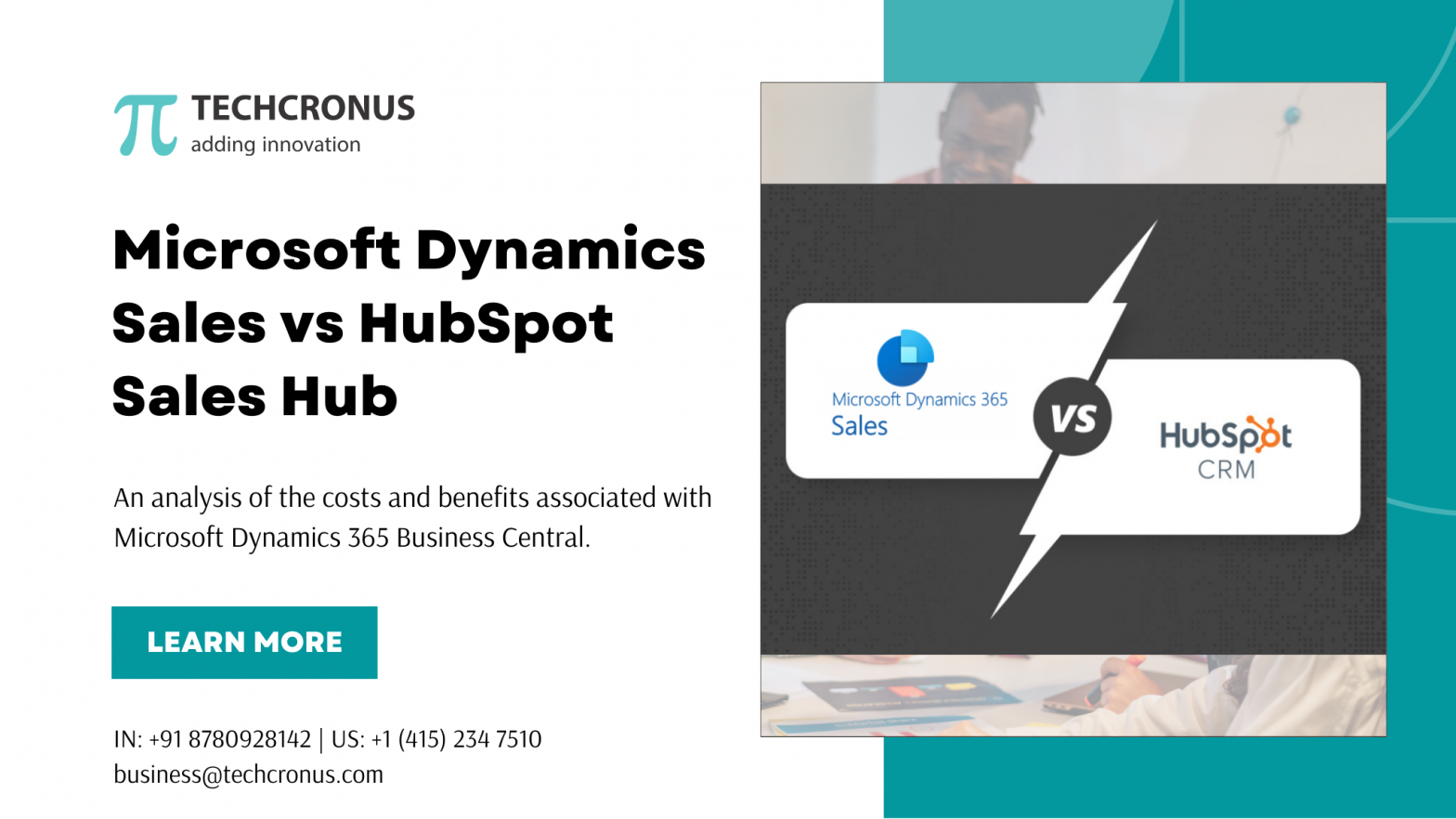Table of Contents
Choosing the correct CRM platform can be crucial for reaching sales goals and propelling company expansion. Microsoft Dynamics 365 Sales vs HubSpot Sales Hub are two of the leading contenders in this race.
Both platforms provide a comprehensive set of features that are intended to simplify sales operations, enhance customer relationships, and ultimately accelerate revenue generation. But because of the differences in how they operate and offerings, it is essential for businesses to learn the ins and outs of each before choosing one.
Microsoft Dynamics 365 Sales is renowned for its deep integration capabilities, particularly within the Microsoft ecosystem, offering a comprehensive suite of business applications that cater to a wide range of sales activities. On the other hand, HubSpot Sales Hub is celebrated for its user-friendly interface and out-of-the-box ease of use.
Overview of Microsoft Dynamics 365 Sales
Microsoft Dynamics 365 Sales is a component of Microsoft’s comprehensive suite of business applications, tailored to enhance sales processes, boost productivity, and drive business growth through smarter decisions and more effective engagements. It is designed to integrate seamlessly with other Microsoft products, such as Microsoft 365 and Dynamics 365 applications, providing a unified experience that leverages the power of Microsoft’s ecosystem.
Dynamics 365 Sales offers a wide array of functionalities, from lead and opportunity management to sales forecasting and analytics, all aimed at optimizing the sales cycle and fostering customer relationships.
Advantages of Microsoft Dynamics 365 Sales
Integration with Microsoft Ecosystem: A standout feature is its seamless integration with other Microsoft tools like Power BI, Microsoft 365, Teams, and LinkedIn, enabling users to work efficiently without having to switch between applications.
Customization and Scalability: Dynamics 365 Sales is highly customizable, allowing businesses to tailor the platform to their specific needs and scale it as they grow. This makes it an ideal choice for enterprises with complex sales processes.
Advanced Analytics and AI Capabilities: The platform leverages AI and advanced analytics to provide insightful sales data and predictive forecasting, helping sales teams make informed decisions and identify potential opportunities.
Comprehensive Sales Features: It offers a complete set of sales capabilities, including lead and opportunity management, customer insights, relationship analytics, and more, all designed to streamline the sales process and enhance productivity.
Disadvantages of Microsoft Dynamics 365 Sales
Complexity and Learning Curve: The extensive functionality and customization options can make the platform complex to navigate for new users, leading to a steeper learning curve compared to more straightforward solutions.
Implementation Time: Given its customizable nature and deep integration capabilities, the initial setup and implementation of Dynamics 365 Sales can be time-consuming, potentially delaying the time to value.
Requires Technical Expertise: To fully leverage its customization and integration capabilities, businesses may need access to technical expertise, either in-house or through trusted Microsoft Solutions Partner like Techcronus.
Overview of HubSpot Sales Hub
HubSpot Sales Hub is a dynamic sales platform that serves as part of HubSpot’s comprehensive all-in-one suite of marketing, sales, and customer service tools. Designed to integrate seamlessly with HubSpot’s CRM, Sales Hub aims to empower sales teams by automating tasks, organizing lead information, and providing deep insights into sales activities.
It’s known for its user-friendly interface, making it accessible for sales professionals to optimize their workflows and enhance their outreach strategies.
Advantages of HubSpot Sales Hub
Comprehensive Sales Tools: Sales Hub includes a variety of features such as email sequencing, meeting booking, task management, and call logs, which are designed to streamline the sales process and increase efficiency.
Integration and Customization: It offers robust integration with other tools and platforms, including Gmail, Salesforce, and LinkedIn, allowing for a more cohesive sales strategy. The platform is customizable, enabling sales teams to tailor it to their specific needs.
Automation and Productivity: HubSpot Sales Hub provides powerful automation capabilities, such as sales sequences that automatically send emails at optimal times, thereby increasing the chances of engagement and allowing sales reps to focus on more critical tasks.
Insights and Analytics: The platform delivers insightful metrics on prospect engagement, helping sales teams understand customer behavior better and tailor their follow-up strategies accordingly.
Disadvantages of HubSpot Sales Hub
Cost Considerations: While HubSpot Sales Hub provides a free version, it can become quite expensive as businesses scale and require more advanced features. The pricing model is based on the number of contacts and the level of functionality needed, which can add up quickly.
Performance Issues: There have been reports of speed problems and occasional glitches, particularly with in-browser calling features and during high-volume activities, which could impact user experience.
Limited Features in Lower Plans: Essential features such as A/B testing and advanced marketing automation are not included in the more affordable packages, pushing businesses towards higher-priced plans to access full capabilities.
Comparing Dynamics 365 Sales vs HubSpot Sales Hub
Each platform offers distinct features, benefits, and limitations, catering to different business needs, sizes, and sales process complexities.
Customization and Integration Capabilities
Microsoft Dynamics 365 Sales: Dynamics 365 Sales excels in customization, allowing businesses to tailor the platform extensively to fit their unique sales processes and workflows. It provides deep customization options, ranging from user interface adjustments to complex functional modifications.
Its strength lies in seamless integration with the broader Microsoft ecosystem, including Microsoft 365, Copilot, Teams, and LinkedIn, facilitating a unified workspace. The platform also supports integration with various third-party applications through connectors and APIs.
HubSpot Sales Hub: While HubSpot offers various customization options, such as pipeline management and email templates, it is generally considered less customizable than Dynamics 365 Sales, especially in terms of deep functional customizations.
Its strength is in its native integration with the HubSpot ecosystem, streamlining marketing, sales, and customer service processes.
Analytics and AI Functionalities
Microsoft Dynamics 365 Sales: Dynamics 365 Sales leverages Microsoft’s Copilot AI capabilities to provide predictive insights, sales forecasts, and personalized recommendations. Its analytics platform is powerful, offering detailed reports and dashboards that help businesses make data-driven decisions.
HubSpot Sales Hub: HubSpot also incorporates analytics and AI features but focuses more on sales activities and performance metrics. Its predictive lead scoring feature, for example, helps sales teams prioritize leads likely to convert.
User-friendliness
Microsoft Dynamics 365 Sales: The platform’s extensive customization and integration capabilities come with a more complex user interface that may require a learning curve, especially for users not familiar with the Microsoft ecosystem.
HubSpot Sales Hub: Known for its intuitive design and ease of use, HubSpot Sales Hub is user-friendly, making it an attractive option for small to medium-sized businesses and those with less complex sales processes.
Scalability
Microsoft Dynamics 365 Sales: Dynamics 365 Sales is designed to scale with businesses as they grow, accommodating complex sales processes and large volumes of data. Its extensive customization options enable the platform to evolve alongside a business’s changing needs.
HubSpot Sales Hub: HubSpot Sales Hub is scalable, but its pricing structure can become a consideration as businesses grow and need more advanced features. The platform is suitable for businesses scaling their operations, though large enterprises might find Dynamics 365 Sales more aligned with their complex requirements.
Best Suitable For
Microsoft Dynamics 365 Sales: It is best suited for large enterprises or businesses with complex sales processes that require extensive customization, deep integration capabilities, and advanced analytics. Its alignment with the Microsoft ecosystem and Copilot AI making use of GPT models to enhance context of data makes it an ideal choice for organizations already invested in Microsoft products.
HubSpot Sales Hub: It is ideal for small to medium-sized businesses looking for an easy-to-use platform that simplifies sales processes and integrates well with marketing and customer service functions. While scalable, businesses need to consider the increasing costs as they grow and expand their use of the platform.
Pricing Structures and Plans
Both platforms offer different tiers and pricing models tailored to various business sizes and needs. Here’s a detailed comparison of their pricing plans.
Microsoft Dynamics 365 Sales Pricing
Microsoft employs an “attach” pricing model, allowing users to add licenses for other Dynamics 365 applications like Customer Service and Field Service at a discounted rate.
- Dynamics 365 Sales Professional – $65/user/month
- Dynamics 365 Sales Enterprise – $95/user/month
- Dynamics 365 Sales Premium – $135/user/month
Copilot AI features such as opportunity summaries, email and meeting support, record updates, and natural language insights are included in Enterprise and Premium plans.
HubSpot Sales Hub
HubSpot offers a free version with limited features for up to 5 users. More advanced features are included in the paid plans.
- HubSpot Sales Hub Starter – $20/seat/month
- HubSpot Sales Hub Professional – $100/seat/month
- HubSpot Sales Hub Enterprise – $150/seat/month
Conclusion
Businesses must evaluate their current and future needs, considering factors like the required level of customization, the importance of integrating with other business processes, and the total cost of ownership over time, to make an informed decision between these two platforms.
HubSpot Sales Hub offers a more gradual pricing model that starts free and scales up through Starter, Professional, and Enterprise tiers, making it accessible for businesses of various sizes but potentially costly as needs grow.
Dynamics 365 Sales caters to larger or more complex sales operations with its enterprise-focused pricing and the flexibility to customize and scale through its attach model. Its advanced analytics and AI capabilities further allow for predictive insights and data-driven decision-making, setting it apart in terms of functionality and depth.
Partnering with a seasoned implementation partner like Techcronus for Dynamics 365 Sales can significantly ease the transition from traditional CRMs. Techcronus specializes in tailoring Dynamics 365 Sales to fit your specific business needs, ensuring a seamless integration process, and providing ongoing support to maximize your investment.
Take the next step in transforming your sales processes with Dynamics 365 Sales and Techcronus. Discover how we can help you implement a comprehensive, customized sales solution that drives efficiency and enhances customer relationships.






















